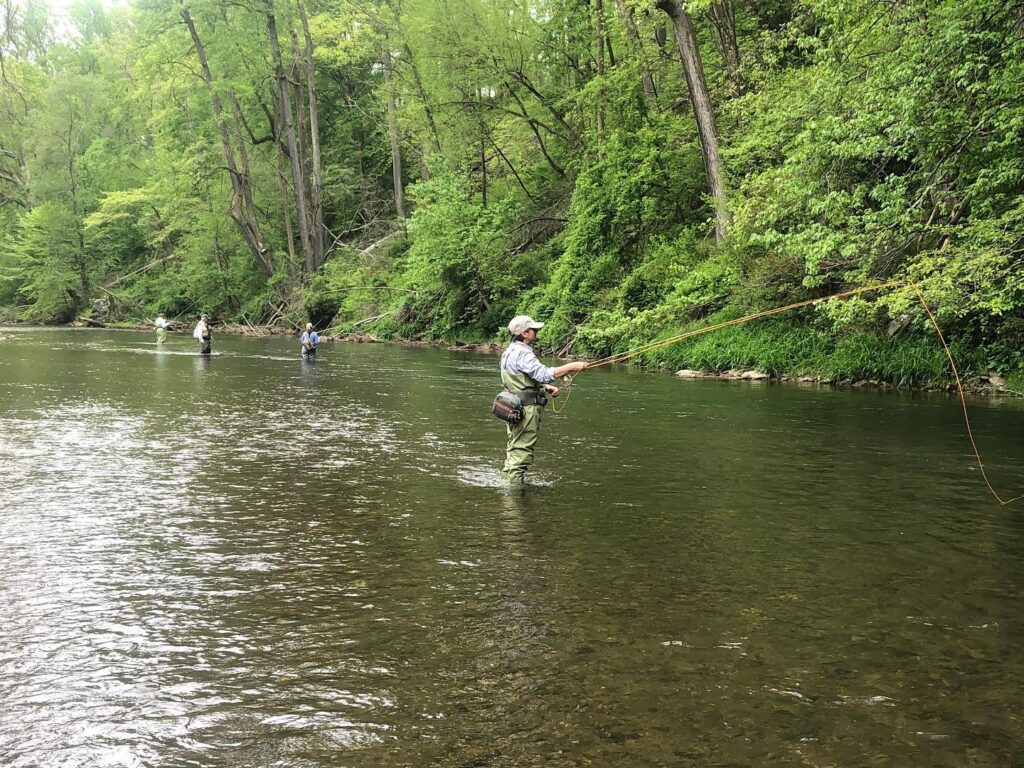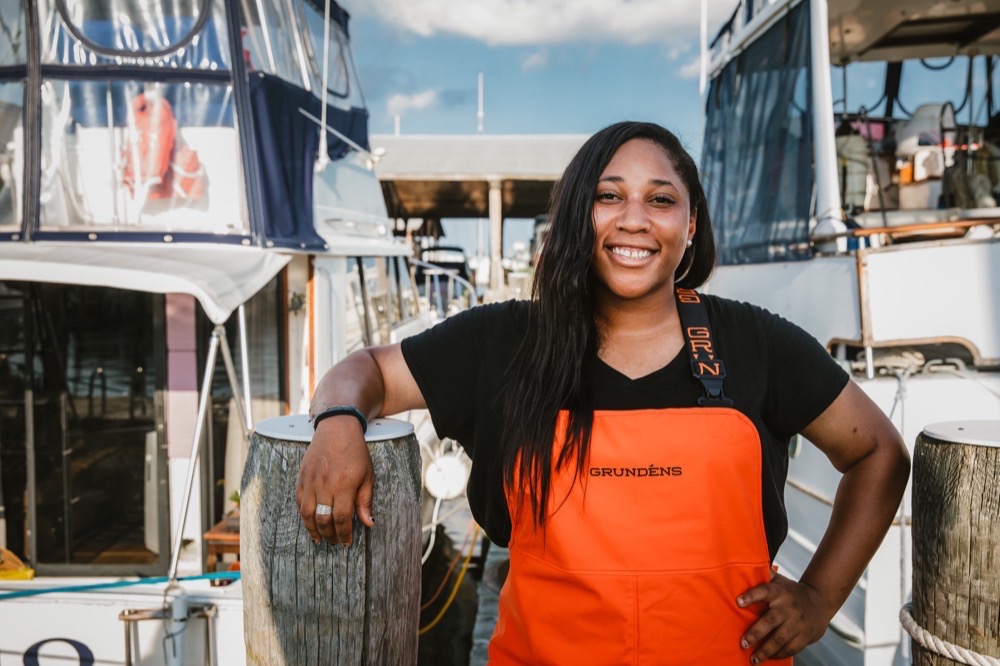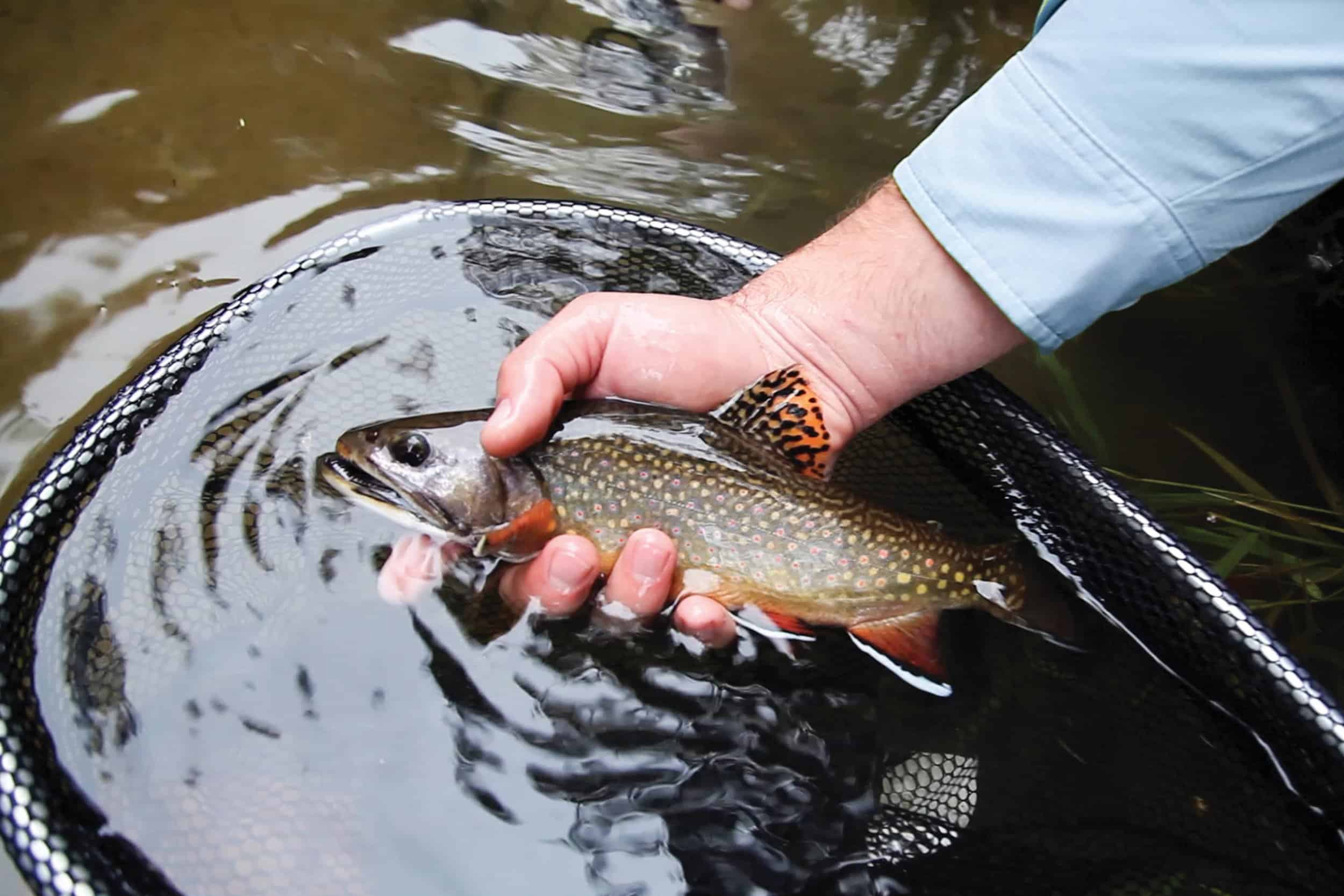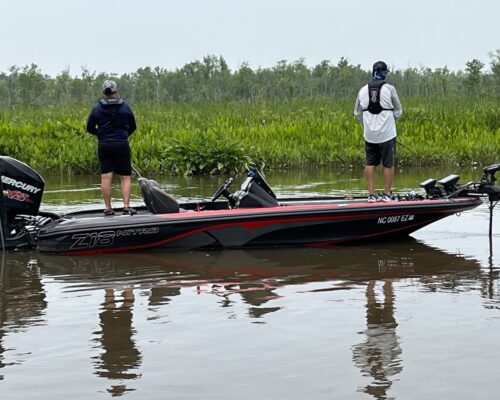Fly fishing is a tremendously fun way to wet a line. While it requires a little more skill than working a spinning rod, the basics are simple. With a little guidance, anyone can learn to catch fish with a flyrod. And the Chesapeake Bay area offers countless opportunities.
With conventional fishing, the rod launches a rig or lure that has enough weight to pull the line off the reel behind it. A fly doesn’t weigh enough to function like that. Instead, you actually cast (or roll) the line out from the rod. The line carries the lightweight fly to the target. It involves more skill and timing than strength. That is why many female casters are so proficient. Unlike men, who try to power their cast, women often rely on technique to produce smoother and beautiful casts. Learning to cast is tremendously rewarding by itself.
If you have never cast a fly rod, it is best to start with a reputable instructor. In-person instruction provides the most benefit. An instructor will observe what you are doing wrong (and right) and will provide immediate correction and feedback. Some guides offer instruction for fly anglers of all levels. Captain Chris Newsome, who operates Bay Fly Fishing in Gloucester County Virginia, is one. “The best clients are those who ask questions and listen to advice, no matter their skill level,” said Newsome. There are online resources as well. A YouTube search of fly casting instructors such as Joan Wolf and Lefty Kreh will provide lots of learning opportunities. Kreh and Ed Jaworowski put together an excellent video titled The Complete Cast. It has information for the beginner as well as advanced casters. You have to buy it, but it is worth it.
After you learn to cast, you will need to learn a little about rigging. For leaders, you can purchase ready-made leaders for any salt water or fresh water fish you are after. In many Chesapeake Bay area salt water fisheries, complicated leaders are not necessary, and a few feet of mono is all you need between the fly line and your fly.
It is way beyond the scope of this article to discuss flies, but there are tons of resources to get you started. Local tackle shops (both for fresh water and the salt) carry flies that are popular in the area you fish. If you employ your favorite search engine with something like “flies for bluefish” you will find more than you can consume in one sitting. Learning to tie your own flies expands the creative aspects of fly fishing.
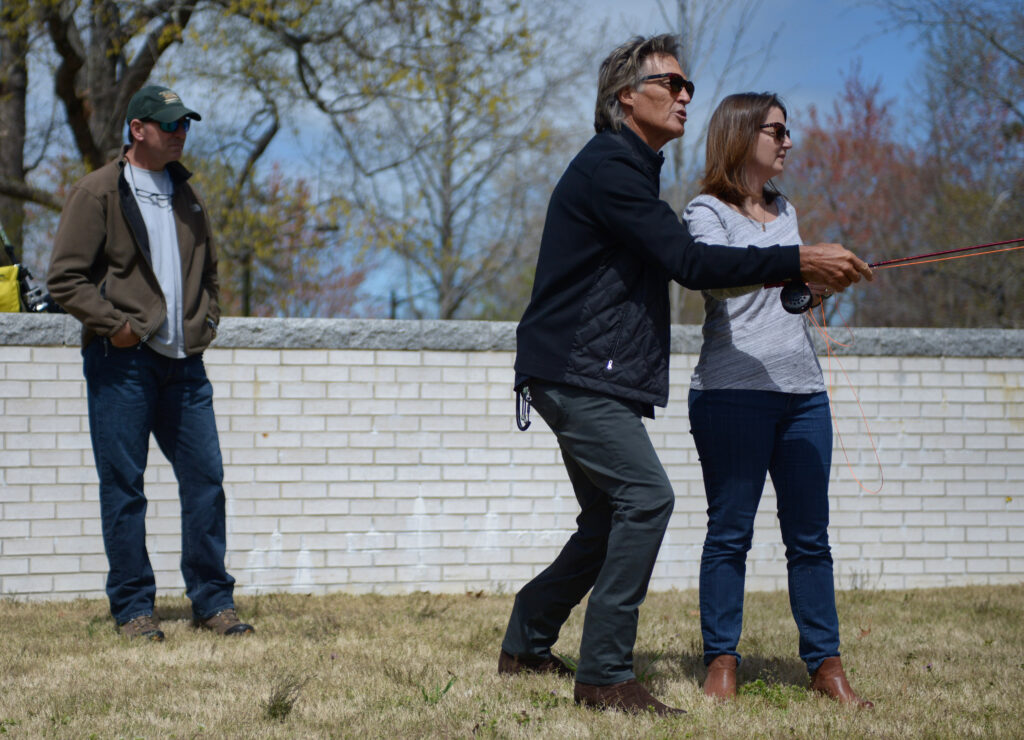
If you are visiting the Chesapeake Bay watershed, hiring a guide who can give you some instruction on all of the aforementioned as well as take you fishing is a good idea. When shopping for a guide, be sure to be honest about your skills. If you are casting for the first time, let them know. They usually have gear you can try as well. In addition to Newsome, Wayne McMasters (Newport News), Kevin Josenhans (Maryland), Chris Karwicki (Maryland), and Chris Malgee (Virginia Beach) will take beginners.
If you are a resident, you have many more opportunities. Fly fishing clubs abound in our region, and they all offer instruction and outings. These include but are not limited to the The Free State Fly Fishers (Annapolis), Chesapeake Women Anglers (DC area), Tidal Potomac Fly Rodders (DC), Falmouth Flats Fly Fishers (Fredericksburg), Fly Fishers of Virginia (Richmond) and the Virginia Coastal Fly Anglers (Tidewater). These clubs offer instruction on casting, fly tying, rigging, and where to fish. They often have events planned exclusively for beginners, including women and youth. For example, the Chesapeake Women Anglers and Tidal Potomac Fly Rodders hold a free casting clinic, called Casting Church, on the second Sunday of each month in Washington, DC. Shops, such as Orvis and Great Outdoor Provision Company, often schedule instructional activities both in their shops and out in the field.
Capt. Newsome noted, “Fly fishing is a discipline that no one fully masters, so I’m constantly working to progress in my craft. I find the challenge to be exciting, but it is important for a novice to set realistic expectations. Keeping things simple at first allows a novice to progress at their own pace without becoming overwhelmed by the many technical aspects of fly fishing.”
That is wonderful advice. It is easy to learn the basics, and you can catch fish just knowing the basics. But if you enjoy it (which you will), you can continue to learn and enjoy fly fishing for the rest of your life.

